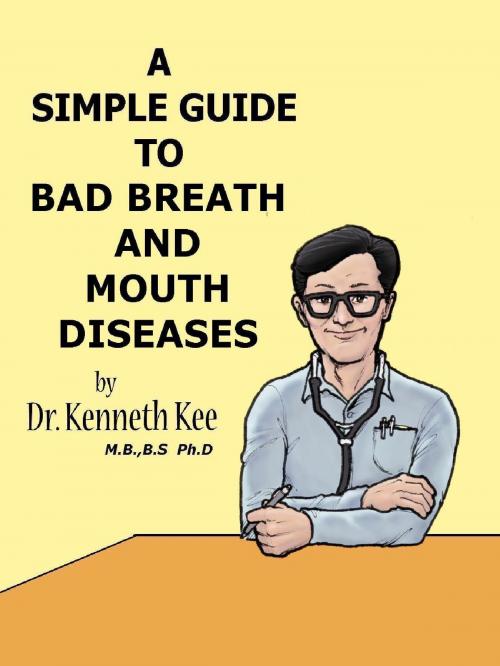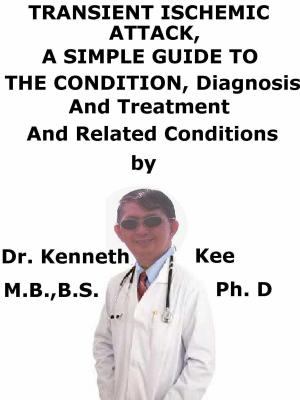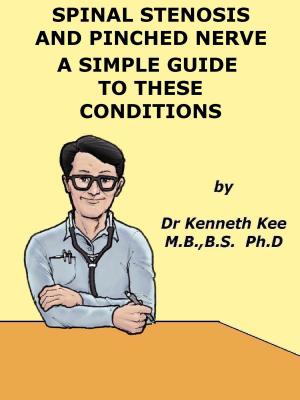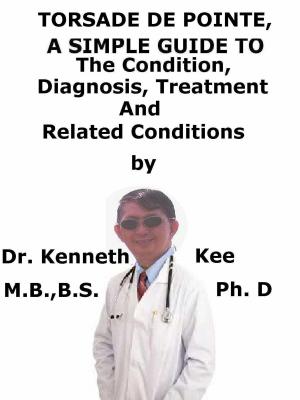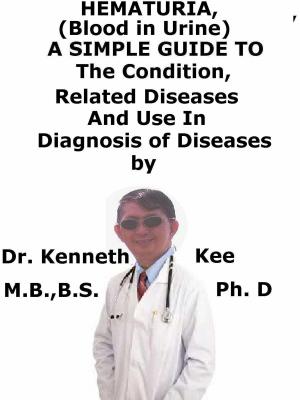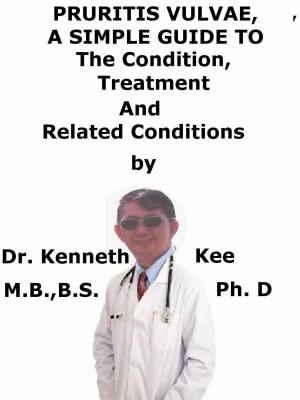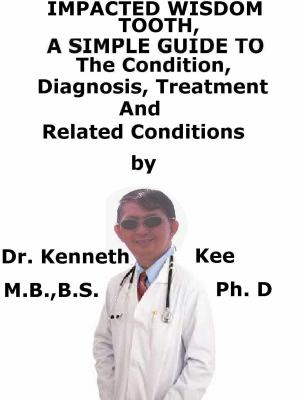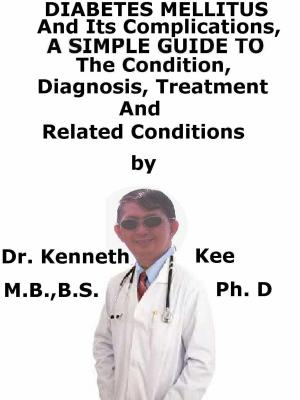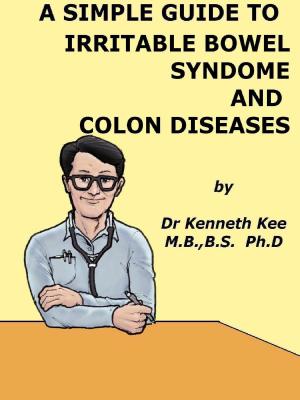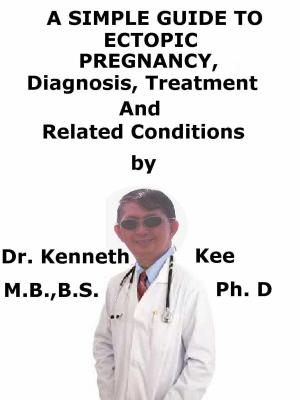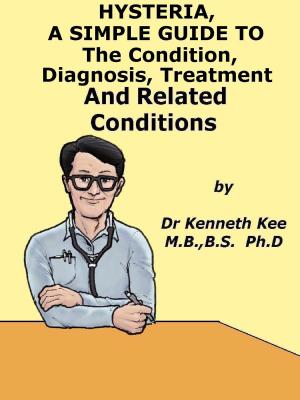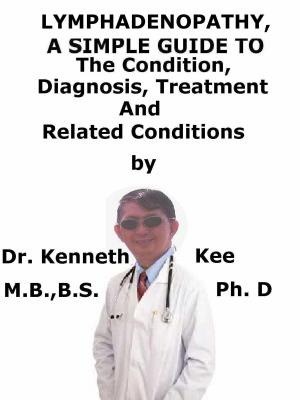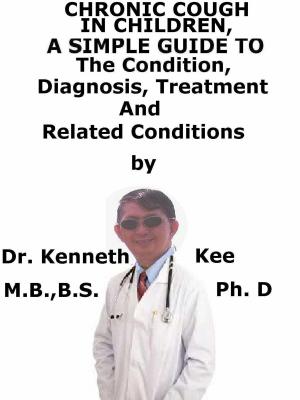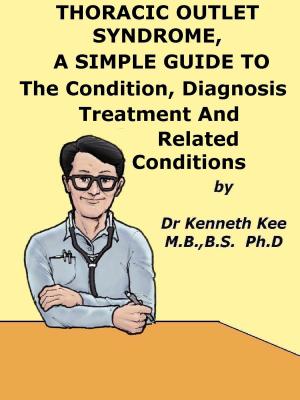A Simple Guide to Bad Breath and Mouth Diseases
Nonfiction, Health & Well Being, Health, Ailments & Diseases, Oral Health, Abdominal| Author: | Kenneth Kee | ISBN: | 9781301996872 |
| Publisher: | Kenneth Kee | Publication: | November 12, 2012 |
| Imprint: | Smashwords Edition | Language: | English |
| Author: | Kenneth Kee |
| ISBN: | 9781301996872 |
| Publisher: | Kenneth Kee |
| Publication: | November 12, 2012 |
| Imprint: | Smashwords Edition |
| Language: | English |
Bad Breath or Halitosis is the condition when a person suffers from chronic bad breath.
What are the causes of Bad Breath?
Halitosis is usually caused by the following:
Infections:
-
bacterial infection of the gums, dental cavities.(600 types of bacteria
present in mouth) -
anaerobic infections of the mouth,
-
Infection of the tonsils, nose and sinuses(postnasal drip)
Gastric problems and indigestion:
-
Indigestion of food in the stomach can cause the undigested food in the stomach to emit an offensive smell through the mouth
-
gastro esophageal reflux of food can also cause the smell of acid and undigested food in the mouth
Certain food:
-
garlic and onions which has odious sulphur compounds can give rise to foul smell from the mouth
-
fish
-
cheese
4.alcohol
Smoking:
Cigarettes smokes contains 40 over chemicals which cause bad mouth smell
Dry mouth:
-
Insufficient drinking of water
-
medications can cause dry mouth and produces a smell from the mouth
Systemic diseases:
-
liver failure.
-
Lower respiratory tract infections
-
Renal infections and renal failure.
-
Carcinoma.
-
Trimethylaminuria ("fish odor syndrome").
-
Diabetes mellitus.
What are the causes of Bad Breath?
Persons who has Bad Breath has the following
Symptoms:
-
Bad breath
-
Dry mouth
Signs:
-
discharge from nose or tonsils
-
furry tongue
How is the diagnosis of Bad Breath made?
Diagnosis can usually be made by :
-
History of bad breath
-
lick the back of the wrist, let the saliva dry for a minute, and smell the dried saliva.
-
scrape the posterior back of the tongue with a plastic disposable spoon and smell the drying residue.
-
Halimeter: a portable sulfide monitor to test for levels of sulfur emissions (especially hydrogen sulfide) from the mouth.
-
BANA test: find the salivary levels of an enzyme which shows the presence of certain halitosis-related bacteria
-
ß-galactosidase test: the presence of this enzyme in the saliva indicates presence of bad breath
What is the treatment of Bad Breath?
Treatment:
-
Appropriate Antibiotics, antifungal for infections of mouth
-
drinking several glasses of water a day prevents dryness of mouth
-
Eating a healthy breakfast helps clean the back of the tongue
-
Proper oral hygiene after eating: brushing of teeth and flossing. Dentures should be removed at bedtime and soaked overnight in antibacterial solutions.
-
Avoid smoking
-
Gargle mouth after every meal.
Avoid the use of alcohol based mouth washes.
Use instead oil based mouth washes.
-
Chewing sugarless gums helps to stimulate production of saliva and hence less bad breath
-
Treat underlying condition such as diabetes, liver, kidney and other conditions.
What is the prognosis of Bad Breath?
Prognosis is usually good with proper oral hygiene.
Recurrence is quite common.
TABLE OF CONTENT
Chapter 1 Bad Breath
Chapter 2 Dental Decay
Chapter 3 Gingivitis
Chapter 4 Stomatitis
Chapter 5 Glossitis
Chapter 6 Mouth Ulcers
Chapter 7 Vincent’s Angina
Chapter 8 Gastro esophageal Reflux Disease
Bad Breath or Halitosis is the condition when a person suffers from chronic bad breath.
What are the causes of Bad Breath?
Halitosis is usually caused by the following:
Infections:
-
bacterial infection of the gums, dental cavities.(600 types of bacteria
present in mouth) -
anaerobic infections of the mouth,
-
Infection of the tonsils, nose and sinuses(postnasal drip)
Gastric problems and indigestion:
-
Indigestion of food in the stomach can cause the undigested food in the stomach to emit an offensive smell through the mouth
-
gastro esophageal reflux of food can also cause the smell of acid and undigested food in the mouth
Certain food:
-
garlic and onions which has odious sulphur compounds can give rise to foul smell from the mouth
-
fish
-
cheese
4.alcohol
Smoking:
Cigarettes smokes contains 40 over chemicals which cause bad mouth smell
Dry mouth:
-
Insufficient drinking of water
-
medications can cause dry mouth and produces a smell from the mouth
Systemic diseases:
-
liver failure.
-
Lower respiratory tract infections
-
Renal infections and renal failure.
-
Carcinoma.
-
Trimethylaminuria ("fish odor syndrome").
-
Diabetes mellitus.
What are the causes of Bad Breath?
Persons who has Bad Breath has the following
Symptoms:
-
Bad breath
-
Dry mouth
Signs:
-
discharge from nose or tonsils
-
furry tongue
How is the diagnosis of Bad Breath made?
Diagnosis can usually be made by :
-
History of bad breath
-
lick the back of the wrist, let the saliva dry for a minute, and smell the dried saliva.
-
scrape the posterior back of the tongue with a plastic disposable spoon and smell the drying residue.
-
Halimeter: a portable sulfide monitor to test for levels of sulfur emissions (especially hydrogen sulfide) from the mouth.
-
BANA test: find the salivary levels of an enzyme which shows the presence of certain halitosis-related bacteria
-
ß-galactosidase test: the presence of this enzyme in the saliva indicates presence of bad breath
What is the treatment of Bad Breath?
Treatment:
-
Appropriate Antibiotics, antifungal for infections of mouth
-
drinking several glasses of water a day prevents dryness of mouth
-
Eating a healthy breakfast helps clean the back of the tongue
-
Proper oral hygiene after eating: brushing of teeth and flossing. Dentures should be removed at bedtime and soaked overnight in antibacterial solutions.
-
Avoid smoking
-
Gargle mouth after every meal.
Avoid the use of alcohol based mouth washes.
Use instead oil based mouth washes.
-
Chewing sugarless gums helps to stimulate production of saliva and hence less bad breath
-
Treat underlying condition such as diabetes, liver, kidney and other conditions.
What is the prognosis of Bad Breath?
Prognosis is usually good with proper oral hygiene.
Recurrence is quite common.
TABLE OF CONTENT
Chapter 1 Bad Breath
Chapter 2 Dental Decay
Chapter 3 Gingivitis
Chapter 4 Stomatitis
Chapter 5 Glossitis
Chapter 6 Mouth Ulcers
Chapter 7 Vincent’s Angina
Chapter 8 Gastro esophageal Reflux Disease
